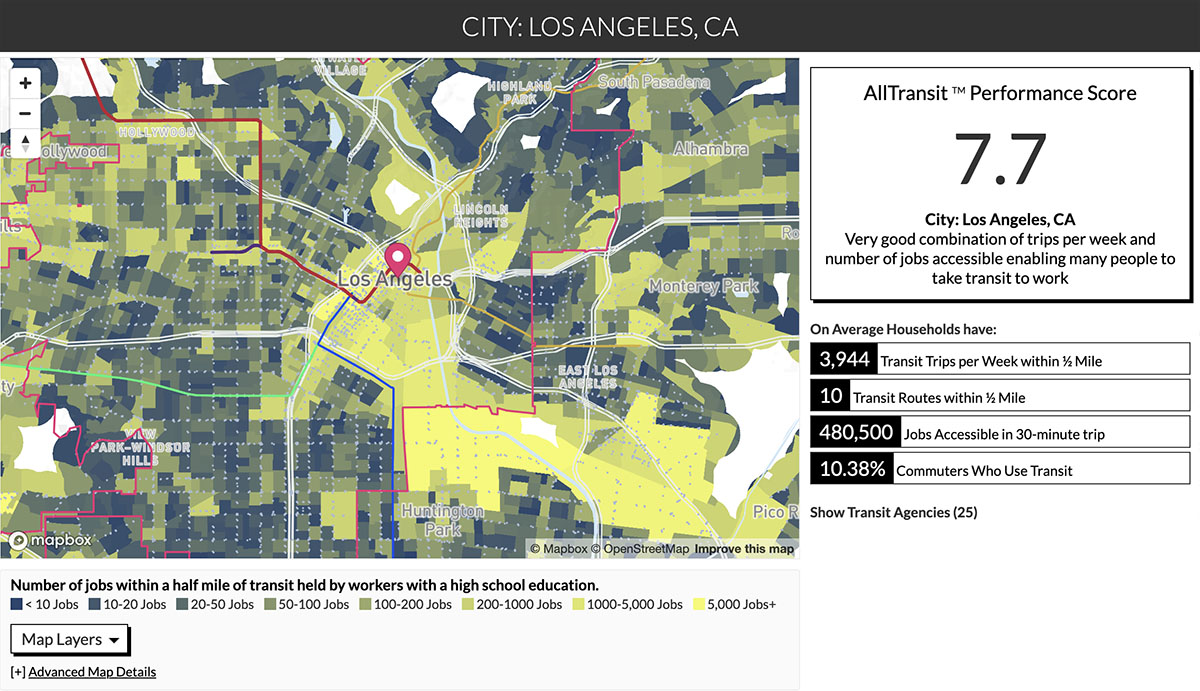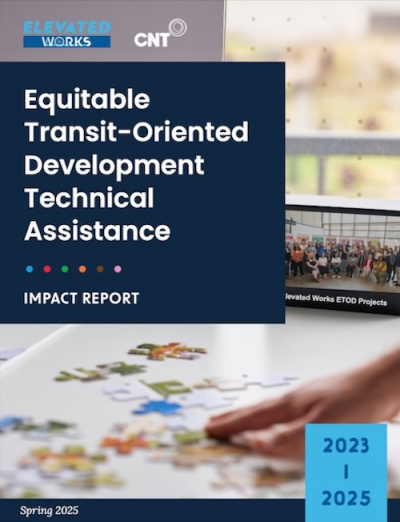
Rising Gas Prices and Total Diving Costs
Since 2008, when gas prices reached record highs, CNT’s H+T Affordability Index has highlighted the impacts of gas prices on household transportation costs. The Total Driving Costs tool allows users to slide the gas price up or down and see how volatility in the price at the pump impacts communities differently. The H+T Affordability Index has long shown that the old “Drive Till You Qualify” real estate mantra fails to capture the higher transportation costs that accompany the... Read the rest of this entry »
Working With CBOs for Transportation Equity
Decisions by transportation agencies have often harmed communities that have not been in positions to advocate for themselves or contribute to decision making. Increasingly, the leaders and staff of transportation agencies recognize this problem and are looking for approaches to improve equity in their transportation decisions. We often hear them ask: “We recognize the need to commit to equity. BUT HOW?” While there is more than one answer to this question, one approach has proven to deliver... Read the rest of this entry »
Public Agencies are Driving Equity in All Transportation Policy Decisions, Acknowledging More Work Must Be Done
Decisions in the transportation field have often harmed Black and brown communities: for example, freeway construction destroying Black and brown neighborhoods, federal funding policies for public transit that favor rail expansion to affluent suburban communities rather than urban transit service improvements, land use decisions that focus on polluting truck traffic in communities of color, and inequitable traffic law enforcement. To advance equity, we need to push transportation decisions... Read the rest of this entry »
The Case for More Operations Funding for Transit
The Bipartisan Infrastructure Bill has been passed by the Senate. That’s an excellent start in addressing our long-neglected physical infrastructure. And now the bill goes back to the House of Representatives for concurrence. In the regular order of business, the House would negotiate and then concur with amendments made in the Senate. But this bipartisan deal did not follow the normal process, essentially negating the ability of House members to negotiate. This is... Read the rest of this entry »
Public Transportation's Impacts on Greenhouse Gas Emissions
Public transportation is a climate solution, and CNT’s recent report for the Transit Cooperative Research Program (TCRP) shows what an important role it plays in controlling emissions nationwide. Public transit in the U.S. saved 63 million metric tons of carbon dioxide equivalent (MMT CO2e) emissions in 2018—the equivalent of taking 16 coal power plants offline for a year. The new report, TCRP Research Report 226: An Update on Public Transportation's Impacts on Greenhouse Gas... Read the rest of this entry »
Eviction and the Cost of Transportation
Summary Two related crises are afflicting US households: increasing housing costs and increasing incidence of eviction. One often overlooked component of these crises is transportation and its costs. This article explores some eviction and transportation data and argues that transportation costs play an integral part in the eviction crisis that affects so many families. The US is experiencing a housing crisis The current US housing crisis began in the run-up to the Great... Read the rest of this entry »
Statement From CNT on Equity and Systemic Racism
Black lives matter. Structural racism has enabled law enforcement to use incarceration and lethal violence upon Black men, women, and children, over-and-over, for centuries. These are people with names and families and stories. The current protests give voice to the suffering and righteous anger of Black communities across the nation. We humbly stand in solidarity and allyship with this movement. We will continue our internal journey of pursuing racial equity and justice through our work as... Read the rest of this entry »
The economics of integration or assimilation - why can’t I live in a Black neighborhood without making the journey of a thousand miles for fresh veggies?
Beyond all mainstream Obama-induced beliefs, structural racism is alive and well in this country. This type of racism hasn’t even taken a day off. Racism rears its head in many ways, but one of the ways it silently expresses itself is under the narrative of integration. Our ancestors fought hard and persistently to grant us all the right to live and shop wherever we wanted, but the result behaves more like assimilation than integration. Integration is the unification of... Read the rest of this entry »
Chasing after an adequate grocer: trains, cars, bikes, and my Black experience.
Having always lived in a Black community, I have always had to travel to the next-town-over to buy full groceries. There was one exception. As a child, I often walked to an exceptional grocery store. It was built on the site of an existing forest, anchored economic development, then suddenly closed after seven years. It remains vacant more than twenty years later. I will also note that the grocery store provided video rentals. The lower cost and one-stop-shopping forced... Read the rest of this entry »
Who am I and why do I live in a food desert? (Hint - It’s because I’m Black)
A food desert is commonly defined as a neighborhood area more than a mile away from full-service food access. First, a little context: I am a Black female millennial who rents on the West Side of Chicago. Grocery shopping is the only form of shopping I enjoy, I engage in it every other day. My parents moved me to an auto-oriented suburb when I was very young. Without anyone telling me it was so, I believed that when I saw a person walking they did so because they were destitute... Read the rest of this entry »





 Strengthening Transit Through Community Partnerships
Strengthening Transit Through Community Partnerships








